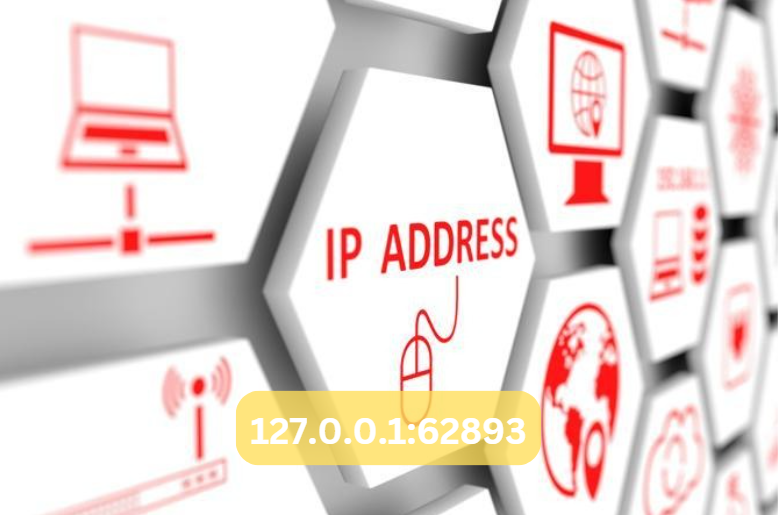Everything You Need to Know About “127.0.0.1:62893”
Contents
Introduction
When you encounter “127.0.0.1:62893,” you’re dealing with an IP address and port number combination that refers to a local host. This address is commonly used in networking and computer science, specifically in situations involving server configurations, software development, and testing.
This article will dive deep into the significance of “127.0.0.1:62893,” providing a comprehensive guide that surpasses existing online sources. Whether you’re an IT professional, a developer, or a curious individual, this article aims to equip you with valuable insights, interpretations, and practical knowledge.
Understanding 127.0.0.1
What is 127.0.0.1?
The IP address 127.0.0.1 is known as the loopback address. It is a special IP address used by a computer to point to itself. This address is part of the IPv4 address range and is primarily used for testing and network diagnostics.
When you ping 127.0.0.1, you are essentially asking your computer to communicate with itself, ensuring that the network stack is functioning correctly.
Significance of the Loopback Address
The loopback address plays a crucial role in the following scenarios:
- Testing Network Software: Developers often use 127.0.0.1 to test network applications on their own machines without affecting external networks.
- Troubleshooting: Network administrators use this address to diagnose issues within the network stack of a computer.
- Security: The loopback address helps in securely running applications locally without exposing them to the internet.
The Role of Port Numbers
What is a Port Number?
In networking, a port number is a 16-bit integer that identifies a specific process or service on a host. Ports allow multiple services to run on a single IP address without conflict. For instance, web servers typically use port 80 for HTTP and port 443 for HTTPS.
Port 62893
In the context of “127.0.0.1:62893,” 62893 is a port number. Port numbers range from 0 to 65535 and are categorized as well-known ports (0-1023), registered ports (1024-49151), and dynamic or private ports (49152-65535). Port 62893 falls within the dynamic or private port range, meaning it is often used for temporary purposes and ephemeral connections.
Common Uses of “127.0.0.1:62893”
Local Development Environments
Developers frequently use local addresses and ports like “127.0.0.1:62893” to run and test applications on their local machines. This setup allows for a safe and controlled environment where changes can be made without impacting live servers.
Server Configuration and Testing
System administrators use “127.0.0.1:62893” to configure and test server applications. By binding services to the loopback address, they ensure that these services are only accessible locally, enhancing security during the testing phase.
Network Security and Privacy
Using “127.0.0.1:62893” can also enhance security. By running applications locally, sensitive data is less exposed to potential threats from the internet. This practice is especially important during the development and debugging stages of software.
Setting Up and Using “127.0.0.1:62893”
Configuring Your Environment
To utilize “127.0.0.1:62893,” you need to configure your local environment appropriately. This usually involves setting up your server or application to listen on the specified port.
Steps to Configure:
- Modify Configuration Files: Adjust the configuration files of your application to bind to 127.0.0.1 and port 62893.
- Firewall Settings: Ensure your firewall settings allow traffic on port 62893.
- Testing: Use tools like
curl,telnet, or browser to access “127.0.0.1:62893” and verify the setup.
Practical Examples
Example 1: Running a Local Web Server
If you’re running a local web server, you can configure it to bind to “127.0.0.1:62893” in the server’s configuration file:
server {
listen 127.0.0.1:62893;
server_name localhost;
root /var/www/html;
}Example 2: Testing a Database Connection
Database administrators can use “127.0.0.1:62893” to test local database connections:
mysql -u root -p -h 127.0.0.1 -P 62893Advanced Insights
Security Implications
While using “127.0.0.1:62893” enhances security by limiting access to local connections, it’s crucial to consider other security measures:
- Authentication and Authorization: Implement robust authentication mechanisms to ensure that only authorized users can access the services.
- Encryption: Use encryption protocols such as SSL/TLS to protect data even in a local setup.
- Regular Audits: Regularly audit your network and application configurations to identify and mitigate potential vulnerabilities.
Performance Considerations
Using “127.0.0.1:62893” for local testing generally offers excellent performance due to minimal latency and the absence of network hops. However, it’s important to consider the following:
- Resource Allocation: Ensure that your local machine has sufficient resources (CPU, memory) to handle the applications running on port 62893.
- Load Testing: Perform load testing to simulate real-world conditions and identify any performance bottlenecks.
Troubleshooting Common Issues
Issue 1: Port Already in Use
If port 62893 is already in use, you’ll encounter a binding error. Use the following command to identify and terminate the process using the port:
sudo lsof -i :62893
sudo kill -9 <PID>Issue 2: Firewall Restrictions
Ensure your firewall is configured to allow traffic on port 62893. On Linux, you can use iptables or ufw to adjust firewall settings:
sudo ufw allow 62893/tcpFAQs
What is the significance of 127.0.0.1:62893?
“127.0.0.1:62893” refers to a local loopback IP address combined with a specific port number. It is commonly used for testing, development, and configuring local services securely.
Can I use any port number with 127.0.0.1?
Yes, you can use any port number with 127.0.0.1, but it’s important to ensure that the port number is not already in use by another service and is allowed by your firewall settings.
How do I check if port 62893 is open on my system?
You can check if port 62893 is open using the netstat or ss command:
sudo netstat -tuln | grep 62893Is it safe to expose 127.0.0.1:62893 to the internet?
No, 127.0.0.1 is meant for local use only. Exposing it to the internet defeats its purpose and can pose significant security risks.
How can I change the port number for my local application?
You can change the port number by modifying the configuration files of your application to bind to a different port. Ensure that the new port is not in use and is allowed by your firewall.
Conclusion
Understanding and effectively using “127.0.0.1:62893” can significantly enhance your development, testing, and configuration processes.
By following the guidelines and best practices outlined in this article, you can leverage this local address and port combination to create a secure and efficient working environment. Whether you are setting up a local server, testing network applications, or enhancing security, “127.0.0.1:62893” offers a versatile and reliable solution.

